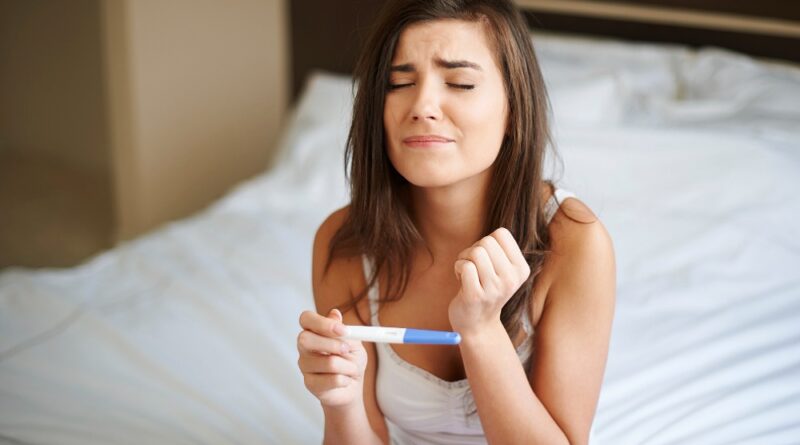What are some possible causes of Female Infertility?
Getting pregnant and carrying a baby to term are actually very difficult things to do. During these steps, many things can go wrong, making it impossible to have children. Because of this, the list below only includes some of the most common reasons why women can’t have children. It is not meant to be all-inclusive. If a woman can’t get pregnant or can’t carry a pregnancy to term, she should talk to her doctor about possible treatments.
You will be interested on: Female Infertility Treatment in Manikonda
Failure to Ovulate
Most of the time, a woman can’t get pregnant because she doesn’t ovulate. This happens to about 40% of women who can’t get pregnant. There are many reasons why a woman might not ovulate, such as:
- Ovarian or gynaecological problems, like primary ovarian insufficiency (POI) or polycystic ovary syndrome (PCOS), can make it hard to get pregnant.
- Diminished ovarian reserve” means that a woman’s ovaries have fewer eggs than usual because of normal ageing.
- The body may produce too much or too little of a hormone or group of hormones due to endocrine disorders like thyroid disease or issues with the hypothalamus.
- Lifestyle and environmental factors
Keep reading : Sexologist in Hyderabad
Problems in the Menstrual Cycle
Problems with a woman’s menstrual cycle, which gets her body ready for pregnancy, can lead to her not being able to have children. The menstrual cycle has several phases, and problems at any one of them can make it hard to get pregnant or make it impossible to get pregnant.
Keep reading: Female Infertility Treatment in Banjara Hills
Structural Problems of the Reproductive System
The majority of structural issues are a result of abnormal tissue in the fallopian tubes or uterus.
If the fallopian tubes are blocked, eggs can’t move from the ovaries to the uterus, and sperm can’t reach the egg to fertilise it. Infertility can also be caused by problems with the way the uterus is built, like if it gets in the way of implantation.
Some structural problems that can make it hard to get pregnant are:
- Endometriosis is when tissue that normally lines the inside of the uterus is found in other places, like blocking the fallopian tubes.
- Uterine fibroids are growths that form inside and outside of the uterine wall. Most women with fibroids don’t have trouble getting pregnant, though. But some women with fibroids might not be able to get pregnant on their own, or they might have a lot of miscarriages or preterm labour.
- Polyps are growths on the inside of the uterus that are not cancerous. Polyps can make it hard for a woman to stay pregnant after getting pregnant because they interfere with the way the uterus works. Having surgery to remove polyps can make it easier for a woman to get pregnant.
- Scars on the uterus from injuries, infections, or surgeries in the past. Scars can make it more likely that a pregnancy will end in miscarriage and can get in the way of implantation, which can lead to infertility.
- a uterus with an unusual shape, which can make it harder to get pregnant and carry it to term.
You will be interested on: Female Infertility Treatment in Hyderabad
Infections
Infections can also make it hard for men and women to have children.
If gonorrhoea and chlamydia aren’t treated, they can cause pelvic inflammatory disease in women, which can lead to scarring that can block the fallopian tubes. If syphilis isn’t treated, it makes it more likely that a woman who is pregnant will have a stillbirth. The sexually transmitted infections (STIs) health topic page has more information about infections that can affect fertility.
Chronic infections in the cervix and surgical treatment of cervical lesions caused by human papillomavirus (HPV) infection can also reduce the amount or quality of cervical mucus. This gummy or slippery substance that builds up on the cervix and in the vagina can make it difficult to become pregnant.1
The Centres for Disease Control and Prevention recommend that all boys and girls age 11 or 12 get an HPV vaccine. Men and women who were too young to get the vaccine as preteens can still get it in their early to mid-20s.
Keep reading: Female Infertility Treatment in Bangalore
Failure of an Egg to Mature Properly
Eggs may not mature properly for a number of reasons, such as PCOS, being overweight, or not having enough of certain proteins that are needed for the egg to mature.
If an egg isn’t ready to be released, it might not happen at the right time, it might not make it down the fallopian tubes, or it might not be able to be fertilised.
You will be Interested on : Sexologist in Guwahati
Implantation Failure
Implantation failure is when a fertilised egg doesn’t stick to the wall of the uterus and start a pregnancy. When implantation fails, the exact reason is often unknown, but some possibilities are:
Genetic defects in the embryo
- Thin endometrium (pronounced en-doh-MEE-tree-uhm)
- Embryonic defects
- Endometriosis
- Progesterone resistance
- Scar tissue in the endometrial cavity
Endometriosis
Endometriosis happens when the endometrium, which is made up of cells that normally line the uterus, grows outside of the uterus.
Endometriosis has been linked to not being able to have children. Studies show that between 30% and 40% of women with endometriosis are unable to have children and that between 25% and 50% of infertile women have endometriosis. Scientists don’t know for sure why women with endometriosis can’t have children.
Some current ideas about how endometriosis causes infertility are:
- There may be changes in the way the female reproductive organs look. Endometriosis can cause scar tissue to grow between structures in the pelvis, like between the ovary and the pelvic wall. This can make it hard for the egg to come out after ovulation. If there are scars in the fallopian tube, the egg may not be able to move through them.
- The lining of the abdomen, called the peritoneum (say: pair-ih-tuh-NEE-um), can change in ways that can affect how it works.
When a woman has endometriosis, the peritoneum often fills up with more fluid.
There are things in the fluid in the peritoneum that can hurt the way the egg, sperm, and fallopian tubes work.
- Endometriosis causes chemical changes in the lining of the uterus, which can make it hard for an embryo to implant properly and for a woman to stay pregnant after she gets pregnant.
Keep reading : Sexologist in Bangalore
Polycystic Ovary Syndrome (PCOS)
PCOS is one of the most common reasons why women can’t have kids. 9 It is a condition in which a woman’s ovaries and, sometimes, her adrenal glands make more androgens than usual. High levels of these hormones make it hard for ovarian follicles to grow and for eggs to be released during ovulation. Because of this, fluid-filled sacs called cysts can form inside the ovaries.
Researchers think that between 5% and 10% of American women have PCOS. 10 Although the precise cause of PCOS is unknown, current research suggests that a combination of genes and the environment is to blame.
You will be interested on: Ayurvedic Treatment For Polycystic Ovarian Disease/ PCOS
Primary Ovary Insufficiency (POI)
POI is a condition where a young woman’s ovaries stop making hormones and eggs. Due to problems with their ovaries, women with POI don’t ovulate very often, if at all. They may also have abnormal amounts of ovarian and pituitary hormones.
Women with POI have a hard time getting pregnant most of the time. Still, pregnancy is possible, though it happens rarely. About 5–10% of women with POI get pregnant without getting any medical help.
On the page about POI, you can find a more in-depth explanation as well as possible causes.
Uterine Fibroids
Fibroids are growths that happen inside the uterus that are not cancerous. Fibroids in the uterus can sometimes cause symptoms, depending on how big they are and where they are. Scientists don’t know what causes fibroids, but they think it may have something to do with genes.
Fibroids can cause infertility and are found in 5–10% of women who can’t have children. Fibroids that grow in the uterine cavity instead of in the uterine wall or that are bigger than 6 centimetres in diameter are more likely to hurt fertility. If a woman has more than one fibroid, it is more likely to affect her fertility.
- By moving the cervix, you can cut down on the number of sperm that get into the uterus.
- Change the shape of the uterus, which can stop sperm from moving or an egg from being planted.
- If you block the fallopian tubes, sperm can’t get to the egg, and a fertilised egg can’t move to the uterus.
- interfere with blood flow to the uterus, which can stop the embryo from implanting.
Autoimmune Disorders
Autoimmune disorders make the immune system attack healthy parts of the body that it would normally leave alone. Autoimmune diseases like lupus, Hashimoto’s, and other types of thyroiditis, as well as rheumatoid arthritis, can make it hard to get pregnant. The reasons for this are not fully known and vary by disease, but it is thought that inflammation in the uterus and placenta or the medicines used to treat the diseases are to blame. Both men and women can produce antibodies that target sperm or the reproductive organs.
Originally posted 2023-04-25 10:22:49.





